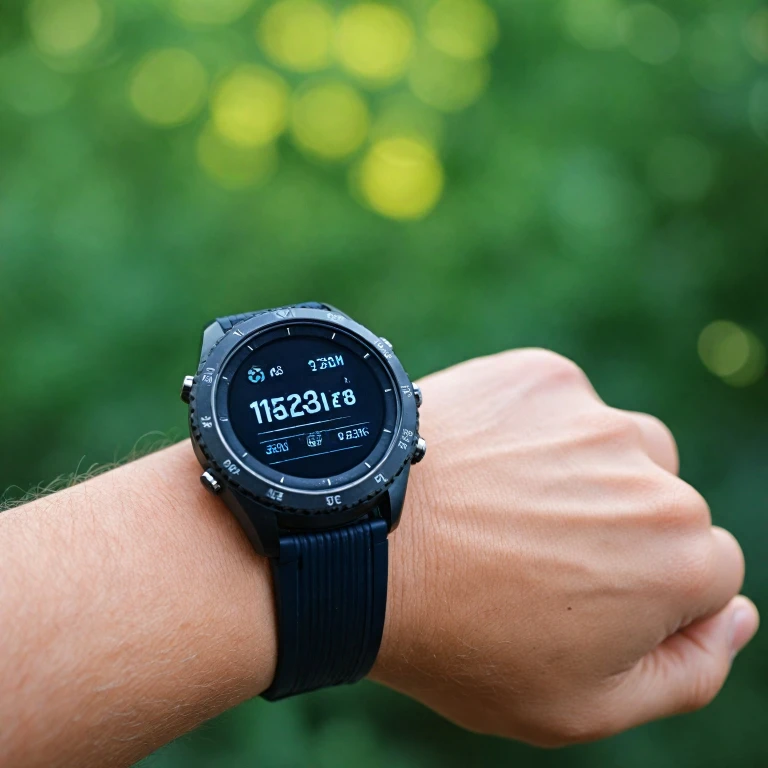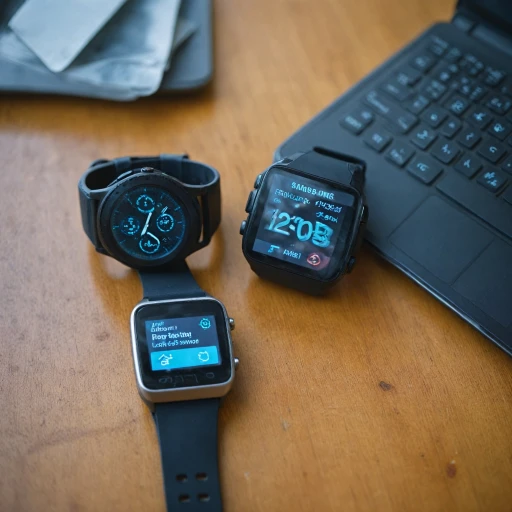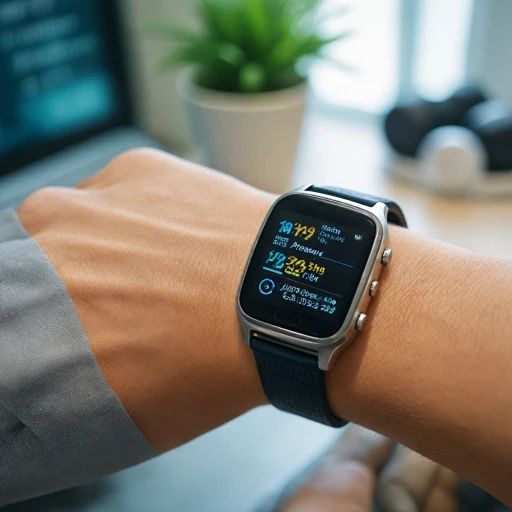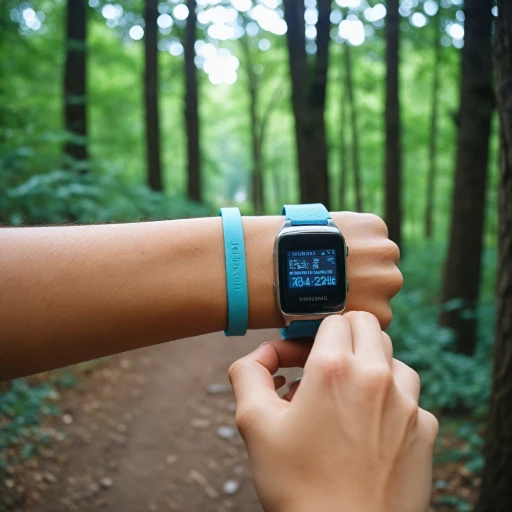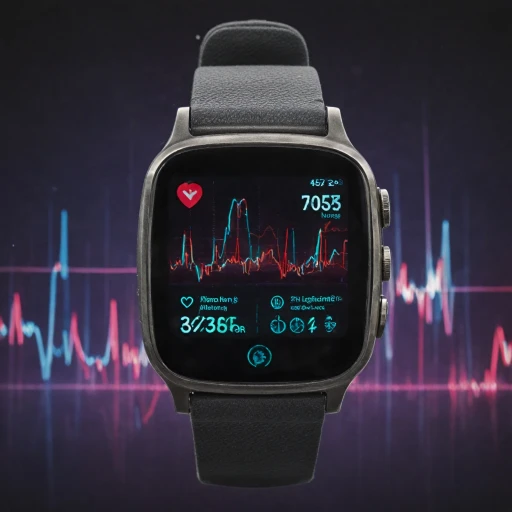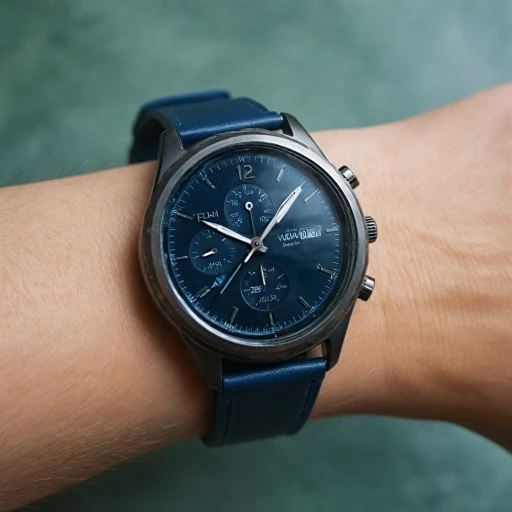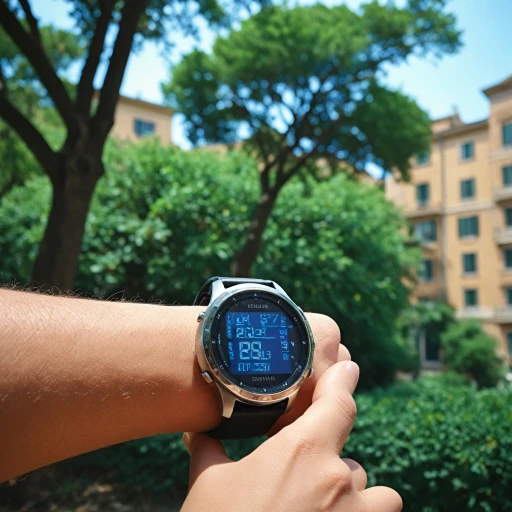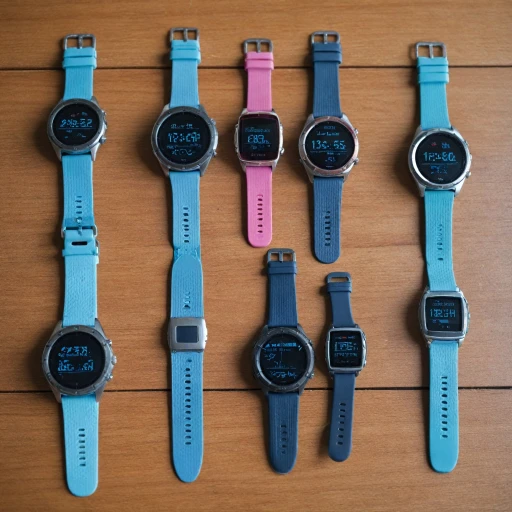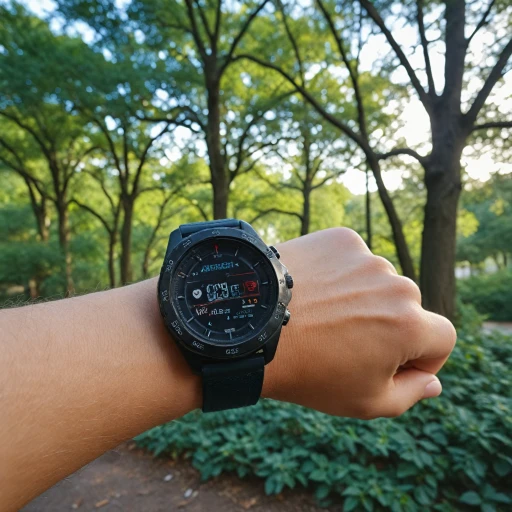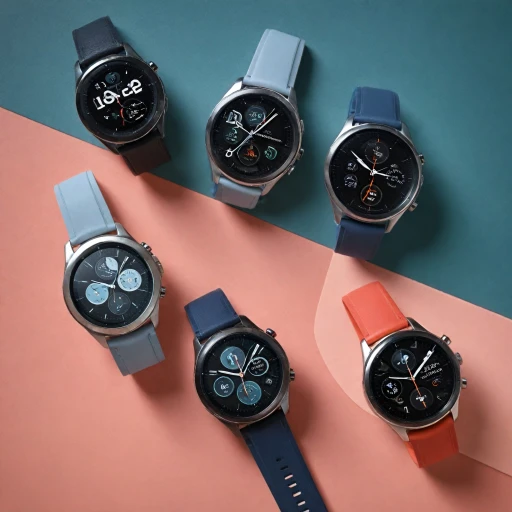
Understanding Health Monitoring Wrist Watches
Discovering the Evolution of Wrist-Based Health Monitoring
The advancement of technology has revolutionized the way we monitor our health, making wrist-based devices like smartwatches an indispensable tool for many. These health monitoring wrist watches, popularized by brands like Apple and Samsung, are equipped with cutting-edge features that provide users with unprecedented insights into their wellness. Smartwatches now come with a plethora of features including heart rate monitors, sleep tracking capabilities, blood oxygen measurement, and more. These devices allow users to keep tabs on their health metrics in real time, transforming data into insights about overall fitness and personal health progress.- Heart Rate Monitoring: A standard feature in most smartwatches, it helps keep track of your heart's activity. Devices like the Apple Watch and Samsung Galaxy Watch offer sophisticated heart rate tracking systems.
- Sleep Tracking: Monitoring sleep patterns has become a crucial aspect of fitness tracking. These watches record your sleep cycles, helping you understand and improve your sleep quality.
- Blood Pressure and Oxygen Tracking: Some advanced models like the Galaxy Watch have introduced features that can measure blood pressure and monitor oxygen levels in the blood.
Key Features of Health Monitoring Wrist Watches
Innovative Attributes Enhancing Your Health Journey
In the evolving landscape of smartwatches, certain features stand out as game-changers for those committed to maintaining their health. These technological advancements play a vital role in personal wellness, offering insights that were once only obtainable in clinical settings.
Smartwatches like the Apple Watch Series and the Samsung Galaxy Watch are equipped with advanced heart rate monitors. The accuracy of these monitors has significantly improved, allowing continuous tracking of your heartbeats throughout the day. Monitoring heart rate is critical for detecting irregularities early and preventing potential health concerns.
Another remarkable feature is sleep tracking. Understanding sleep patterns can guide users to develop better habits. The sleep data provides insights into the quality of sleep, enabling informed decisions to improve rest.
Modern health-monitoring watches often include ECG capabilities, offering an easy way to detect signs of atrial fibrillation—a condition that can lead to stroke if unnoticed. For more details on how ECG watches benefit users, delve into our exploration of ECG watch benefits.
Blood pressure monitoring, previously reliant on bulky devices, is now a common feature. This capability provides an ongoing record of a user’s blood pressure, aiding in the management of conditions such as hypertension without the need for multiple devices.
When it comes to battery life, innovations are making these devices more user-friendly. Watches like the Galaxy Watch are designed to last several days on a single charge, which means less disruption in health monitoring.
The robustness of activity tracking is another highlight. Many fitness trackers now offer multi-sport tracking, encompassing activities from running to swimming, which automatically fill data based on your activity.
Despite these impressive features, challenges still exist, but the potential impact on personal health and fitness is undeniable. For comprehensive reviews of the best options, ongoing research and user feedback should be considered.
The Impact on Personal Health and Wellness
Transforming Health Management with Smartwatches
Smartwatches have revolutionized the way we approach personal health and wellness, providing tools that were once exclusive to medical professionals. Equipped with cutting-edge features, these devices are transforming health management into a more proactive and intuitive process. For instance, the ability to monitor heart rate, which is available in devices like the Apple Watch and Samsung Galaxy Watch, empowers users to keep a consistent check on their cardiovascular health. Heart rate monitoring isn't just about tracking fitness levels; it's pivotal for identifying irregularities that could indicate potential health issues. As studies have shown, continuous heart rate data can assist in detecting conditions like atrial fibrillation, thereby helping in the prevention of strokes. Sleep Tracking for Improved Rest Another transformative aspect of modern health monitoring watches is their capability to track sleep patterns. Products like the Apple Watch come with advanced sleep tracking features, providing insights that encourage better sleep habits. This has a direct impact on overall wellness, as adequate and quality sleep is crucial for mental and physical health. To delve deeper into enhancing your sleep with smartwatch technology, you can explore this detailed guide. Comprehensive Health Metrics Additionally, these devices now offer blood pressure and blood oxygen level monitoring, like the functionalities seen in the latest Samsung Galaxy Watch series. Such features contribute significantly to everyday health management, allowing users to keep informed about vital health metrics. As fitness trackers incorporate advanced technology like ECG monitors, detailed biometric data becomes accessible, facilitating early detection of health concerns and enabling medical intervention when necessary. The inclusion of sophisticated features in smart watches, such as those offered by the Oura Ring, ensures that users receive accurate and comprehensive health evaluations. The influence of health monitoring smartwatches on personal wellness cannot be understated. They have transformed our relationship with our health, enabling informed decisions based on real-time data. By furnishing users with an extensive array of health features, smartwatches not only support fitness goals but also contribute significantly to maintaining overall health.Comparing Popular Health Monitoring Wrist Watches
Comparing Top Smartwatches for Health Monitoring
When evaluating smartwatches that excel in health tracking, several models stand out due to their comprehensive features and strong performance in monitoring various health metrics. Let's delve into these options:- Apple Watch Series: Known for its cutting-edge health features, the Apple Watch Series boasts an ECG sensor, heart rate monitor, and blood oxygen level tracking. It integrates seamlessly with the health ecosystem, providing users with in-depth data on their wellness. However, it's essential to note that the battery life of the Apple Watch is often considered less extensive compared to some competitors.
- Samsung Galaxy Watch: The Samsung Galaxy Watch, including the Watch Ultra variant, emphasizes comprehensive fitness and health monitoring. It comes equipped with sleep tracking, ECG, and blood pressure measurement features. The Samsung Galaxy models usually offer a robust battery life, ensuring extended use for daily health tracking.
- Fitbit Fitness Trackers: Renowned for their focus on fitness, Fitbit devices offer reliable heart rate tracking, blood oxygen monitoring, and sleep tracking. Although not a traditional smartwatch, their dedicated fitness functionality makes them a preferred choice for serious athletes or those dedicated to precise fitness tracking.
- Oura Ring: While not a smartwatch, the Oura Ring provides an alternative approach to health monitoring, focusing on comprehensive sleep data and daily activity tracking. It's an effective choice for users prioritizing the convenience and discretion of a non-wrist-worn device.
Challenges and Limitations
Addressing Drawbacks and Hurdles in Smartwatch Health Monitoring
Despite the numerous benefits provided by health monitoring wrist watches like the Samsung Galaxy Watch and Apple Watch, several challenges and limitations are present in the current landscape.
- Accuracy Concerns: While features such as heart rate monitoring and ECG are vital, discrepancies in data accuracy can occur. Some users have expressed concerns related to inconsistent results, particularly when comparing their watch's readings to those from medical equipment.
- Battery Life Limitations: Battery life remains a critical factor. Many advanced smartwatches require daily charging, which can be inconvenient for users. For instance, while exploring features like sleep tracking and fitness tracking, users might face challenges keeping their wearables functional for extended periods.
- Data Privacy Issues: As watches collect sensitive health information, data security remains a vital concern. Users often worry about the unauthorized sharing or misuse of their personal health data, which necessitates robust privacy measures from manufacturers.
- Cost and Accessibility: The best smartwatches equipped with features such as blood oxygen and blood pressure monitoring, like the Apple Watch Ultra, come with premium pricing. Such costs may hinder accessibility for some users who could benefit significantly from wearable health technology.
- Integration and Compatibility: While most smartwatches offer integration with smartphones and apps, compatibility issues can arise. This includes problems syncing data across different platforms, such as mismatches between Android devices and Apple products.
While these hurdles exist, advancements in technology continue to strive toward overcoming these obstacles. Developers are keen to enhance devices, focusing on optimizing features like cls fill and cls stroke, refining accuracy in blood pressure monitoring, and extending battery life days across various models. Such efforts aim to make health monitoring accessible and reliable for a broader audience.
Future Trends in Health Monitoring Wrist Watches
Emerging Innovations in Health Monitoring Watches
As technology advances, health monitoring smartwatches are undergoing remarkable transformations. These devices, including the popular Apple Watch and Samsung Galaxy Watch, continue to play a crucial role in promoting personal health and wellness.- Enhanced Sensor Technology: Future smartwatches are expected to integrate more sophisticated sensors, offering detailed heart rate and blood pressure tracking. Exciting advancements include non-intrusive blood oxygen measurement and even blood glucose monitoring, which could revolutionize diabetes management.
- Improved Data Analytics: The power of data analytics is increasingly being harnessed to provide users with actionable fitness and health insights. By analyzing long-term data patterns, these watches can help identify trends indicating potential health concerns, such as irregular heart rate or disruptions in sleep patterns.
- AI and Machine Learning Integration: Intelligent algorithms can provide personalized health recommendations and lifestyle modifications. For instance, if a watch detects irregularities in your heart rate or sleep cycles, AI-driven platforms may suggest adjustments to your fitness routines or sleep patterns to optimize well-being.
- Better Battery Life: Battery life is among the perennial challenges faced by smartwatch manufacturers. However, recent developments in battery technology promise longer life days, reducing the frequency of charging and enhancing user convenience.
- Comprehensive Health Platforms: Brands like Apple and Samsung are already integrating their devices into broader health ecosystems. This means seamless syncing with medical records and apps, providing users and healthcare professionals a holistic view of one's health. The concert between a watch's data and healthcare providers will pave the way for preventative care and timely interventions.
- Stylish and Comfortable Designs: While technology is advancing, comfort and aesthetics aren't taking a back seat. The future of health monitoring watches involves creating devices like the Oura Ring that blend fashion with functionality, ensuring watches are not only tech-savvy but also trendy and comfortable for everyday wear.

